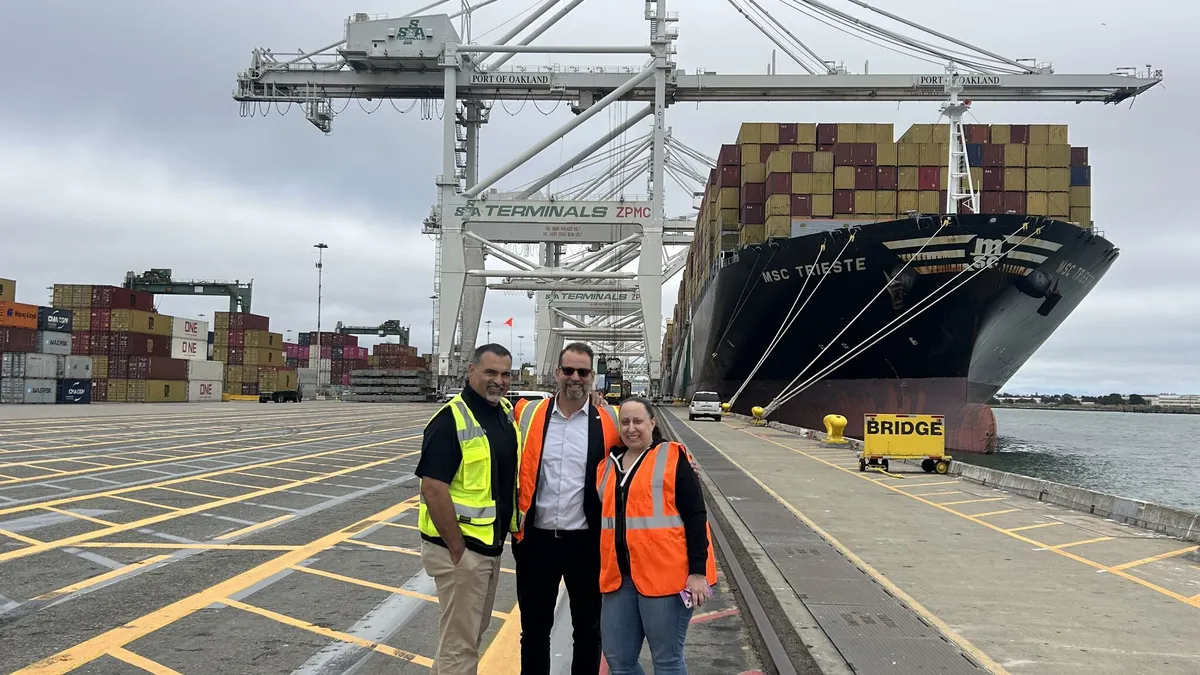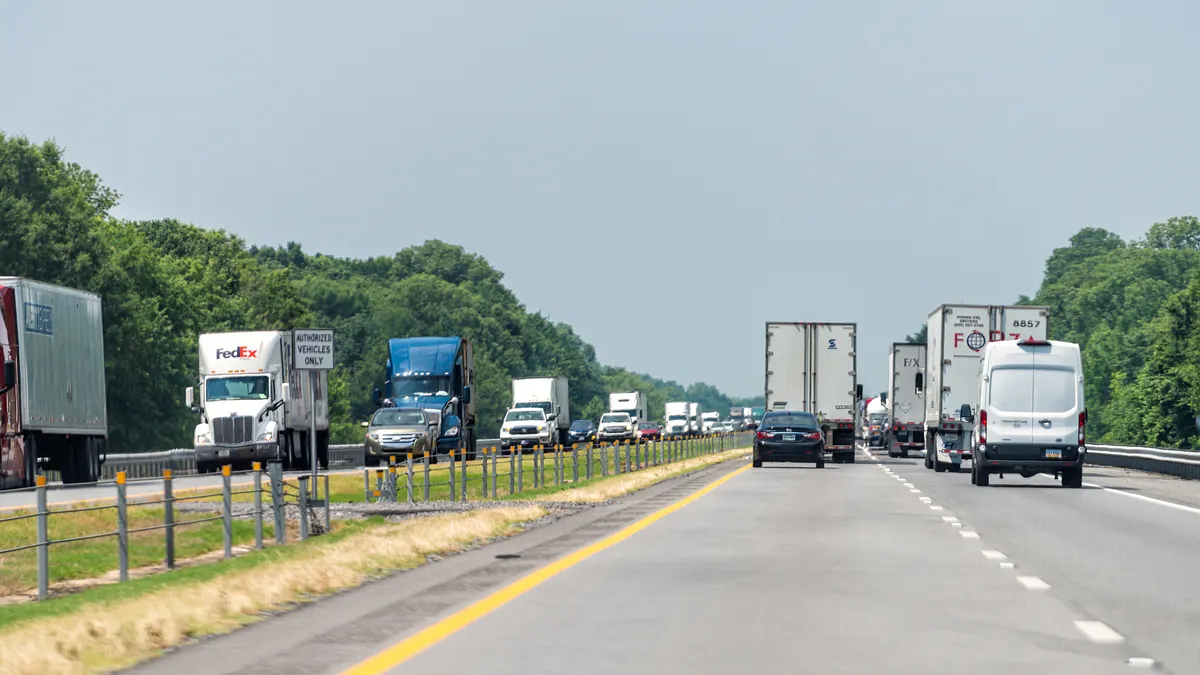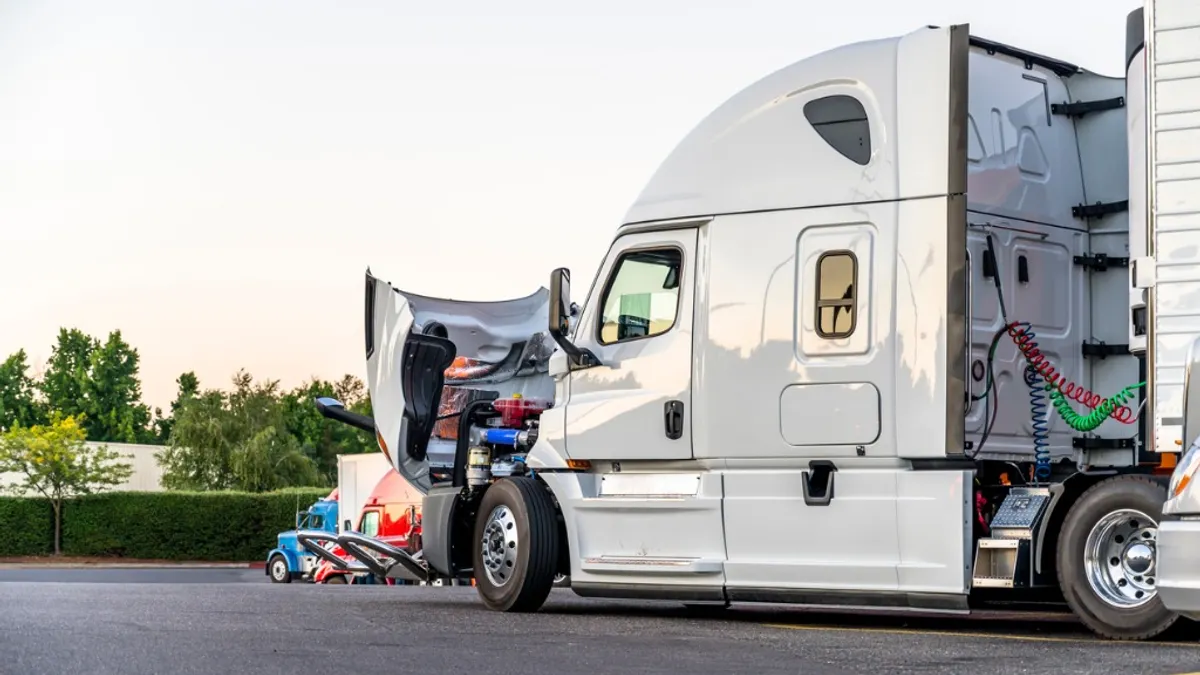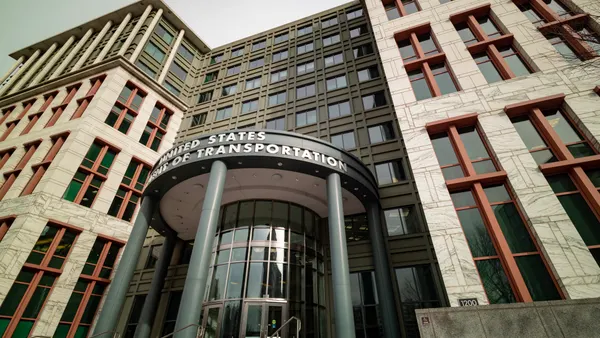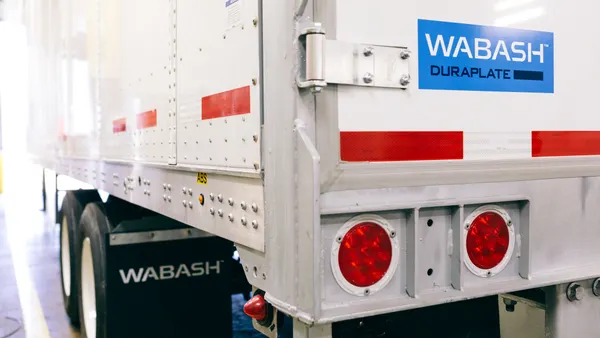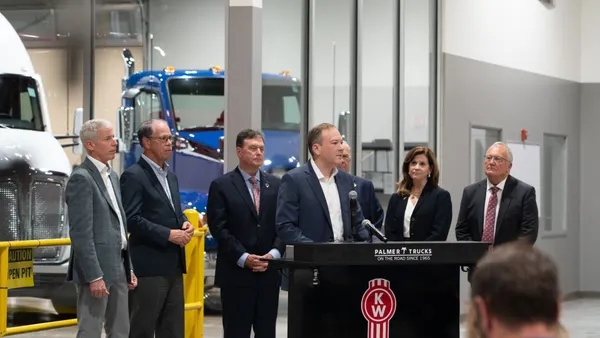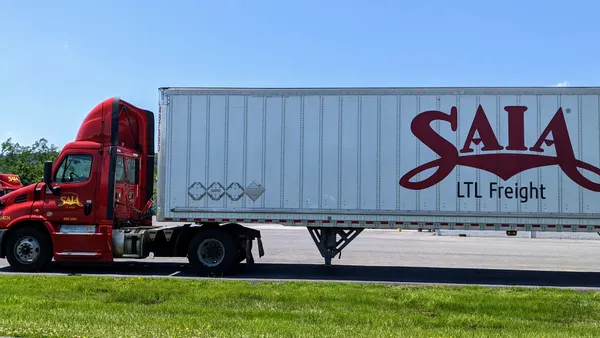As a former trucker, Robert Loya brings in a unique, real-world perspective as the Harbor Trucking Association’s next CEO.
“[I]’m a trucker who crossed over to the association world. So I bring a little different perspective,” he told Trucking Dive in an interview. “I know for a fact that a lot of truckers are happy for that.”
Loya’s career experience includes a decade running a steamship terminal facility and 25 years managing operations in the maritime and trucking industries, he told Trucking Dive. He also held various leadership roles, including with the California Trucking Association, the American Trucking Associations, and the Intermodal Motor Carriers Conference, according to a press release.

Loya replaces Matt Schrap, who announced in May, that he was stepping down after four years at the helm. Schrap’s last day as CEO will be Aug. 22. Loya will take over on Aug. 25 and said he is currently shadowing Schrap.
“Matt’s dedication and uncanny ability to diplomatically maneuver very controversial issues has been instrumental in elevating the Harbor Trucking Association,” Loya said in a May press release.
As CEO, Loya will focus on advocating for HTA members, voicing their interests and making sure they have a seat at the table as part of the global supply chain.
Case in point: One of the biggest issues motor carriers are grappling with is the limited time window that ports offer to pick up an import container, Loya said. To do so, truckers have to secure an appointment, which typically offers carriers only three to four days to access the container.
Whether this happens in California harbors such as Los Angeles, Long Beach or Oakland or in Washington’s Seattle and Tacoma ports, Loya said the issue is the same.
But Loya explained that marine terminal operators and motor carriers previously operated under a “random access model” that allowed truckers to come in any time within the first four days of a container becoming available.
While the current model helps marine terminal operators meter the trucks that come in daily and ensure there’s no congestion, from the truckers’ perspective, “we are limited in that access to pick it up, and so then it restricts our ability to run our operations effectively,” Loya told Trucking Dive. “Obviously, there's a win-win situation we're trying to create with the marine terminal, so that way we aren't abusing the system but also have access, and we're not being penalized.”
Loya’s primary goal is to “service our members, provide value and make sure we retain them in this tough environment [and] economic times,” he said. “It's important for them to understand how important they are to us and how important we are to them,” he added.


